“It is our fault that we cannot supply medicine”
Discussing the socio -economic situation on the afternoon of October 31, expressing opinions related to the health sector, delegate Pham Khanh Phong Lan (Ho Chi Minh City National Assembly Delegation) said that although the health sector was mentioned in the Government's Report, it was still sketchy. Especially the issues mentioned in previous sessions.
Accordingly, delegate Phong Lan requested the Government to supplement and update the situation of drug and medical supplies supply, and update the list of drugs covered by health insurance.
According to the delegation of Ho Chi Minh City, in addition to the medicines and medical supplies that were not provided to the people at certain times, the updating of Vietnam's drug list so that patients can promptly use the latest achievements of mankind is still very slow compared to other countries.
“In Japan, it only takes about 3 months, in France it takes 15 months, and in Korea it takes 18 months. But in Vietnam, it takes an average of 2-4 years for a new drug to be updated in the health insurance drug list. This means losing the rights of the people,” said Ms. Phong Lan.
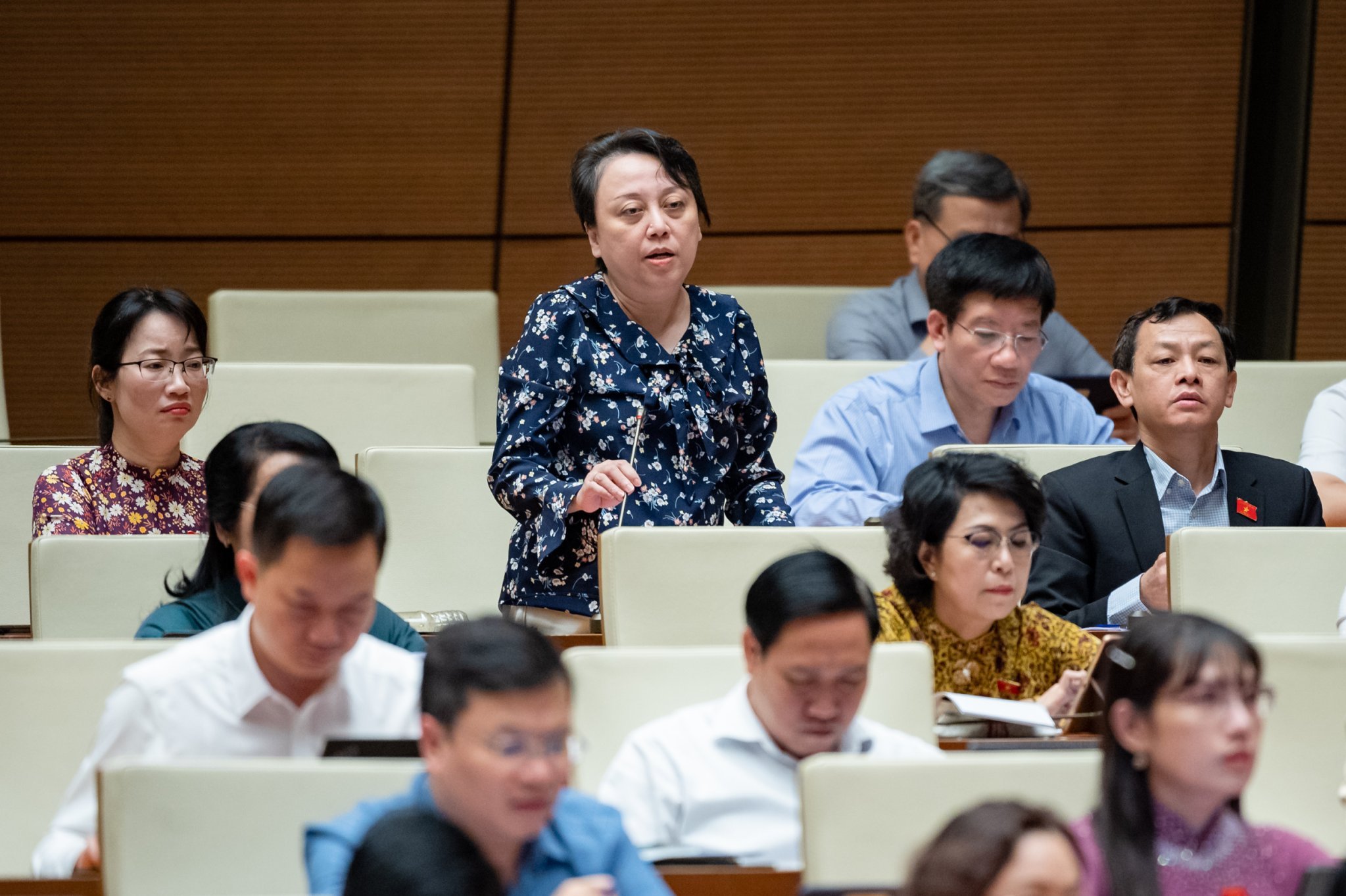
National Assembly Deputy Pham Khanh Phong Lan.
The delegation from Ho Chi Minh City also mentioned the situation where patients have to buy their own medicine, and at the same time, questioned the responsibility of health insurance in this matter. Ms. Phong Lan affirmed: "This is the right of the people and if we cannot provide it, it is our fault."
Delegates proposed to supplement the national reserve policy for some rare drugs to deal with some diseases and some special cases. In particular, to solve the risk of vaccine shortage for expanded immunization in many localities.
At the same time, supplement and clarify the differences in the treatment policy for medical staff, so that we can best demonstrate our concern for the medical sector, which means concern for social security, health, rights and lives of patients.
Delegate Pham Khanh Phong Lan suggested that the Government supplement the report, promote the achieved results and solve the root problems: "Currently, it can be seen that the difficulties do not only come from objective factors such as lack of money, lack of human resources, but sometimes due to regulations and procedures that are too complicated, "fighting" each other, and slow to amend. This requires not only the efforts of the health sector but also the attention of the Government and synchronous direction for all sectors to participate."
According to National Assembly delegate Nguyen Thi Ngoc Xuan (Binh Duong delegation), voters petitioned the Government to continue directing efforts to overcome the shortage of medicine and medical supplies.
Therefore, delegate Xuan suggested that there should be a mechanism to reimburse people for the costs of buying medicines and medical supplies outside the list of those covered by health insurance. The lack of medicines and medical supplies is not the fault of the people but of the state agencies. Therefore, people need a mechanism to protect this legitimate right.
Additional personnel in the medical field
Speaking at the meeting hall, National Assembly Deputy Tran Khanh Thu (Thai Binh delegation) highly appreciated the efforts of the Government and Prime Minister in economic management, basically achieving the set general goals and many important results in various fields.
It is estimated that in 2023, 10/15 targets will reach and exceed the set targets, 2/4 targets in the health sector assigned under Resolution 16 have basically exceeded the plan, including the target of the number of doctors; from 2022 to reach 11.1 doctors/10,000 people, by 2023 it is estimated to reach 12 doctors/10,000 people.
Considering this to be one of the encouraging results, however, delegates also expressed concern that achieving the targets sustainably is not easy.
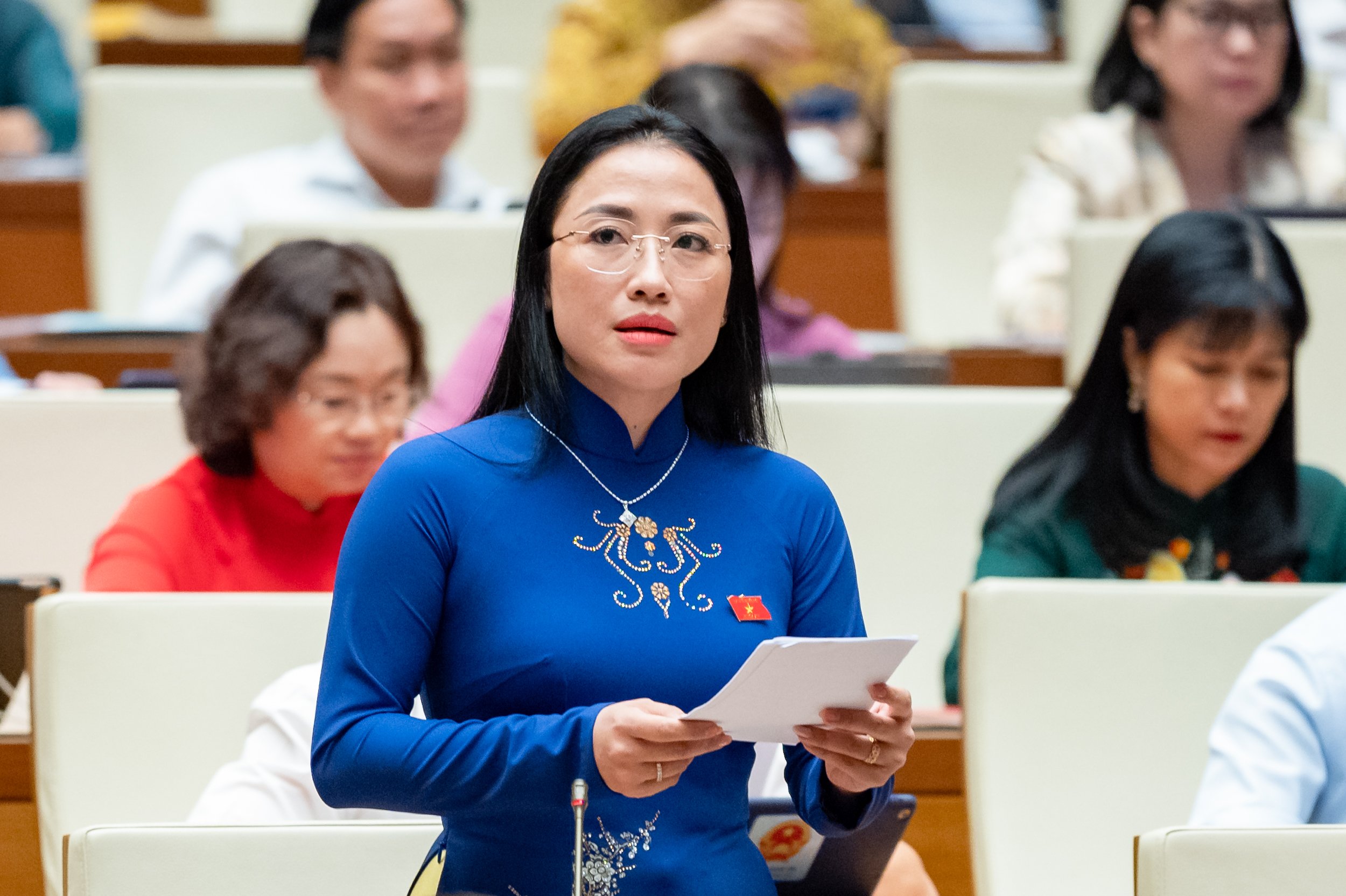
National Assembly Deputy Tran Khanh Thu.
Emphasizing that medical human resources always play an important role, deciding the success or failure in public health care, delegate Tran Khanh Thu said that it is necessary for schools to expand their training programs, especially health training programs, because it will add a large number of human resources to serve in the medical field.
However, if we do not do it strictly right from the appraisal, licensing and supervision stages, the output quality will have differences in the doctors' capacity and it will be unfair to the people's health.
Therefore, delegate Tran Khanh Thu suggested that it is necessary to continue to improve mechanisms and policies, especially capital structures, accordingly, it is necessary to calculate appropriate capital structures and investments for the fields of social security, culture, health, and education, with appropriate and satisfactory determinations for these fields.
Stating that the Law on Medical Examination and Treatment (amended) has stipulated the examination and assessment of capacity to serve the issuance of Licenses to practice medical examination and treatment according to international practices organized by the National Medical Council, delegate Tran Khanh Thu proposed that the National Assembly and the Government allocate sufficient resources for the Council to promptly deploy activities in accordance with the provisions of law to ensure transparency and objectivity when officially implementing the assessment of health workers' capacity.
At the same time, it is recommended that the Government develop a support policy for students studying medical doctor; there should be a policy to allocate budget to hospitals that are qualified as clinical practice facilities in the form of ordering practice tasks for doctors after graduating from university .
Source








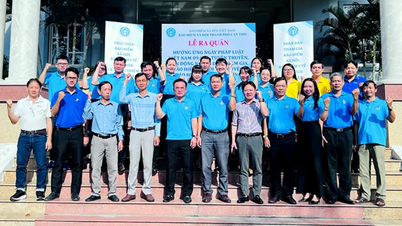

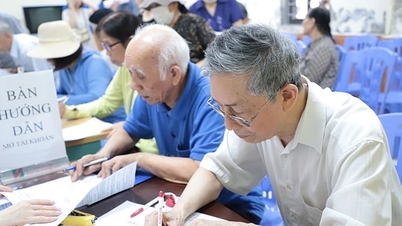

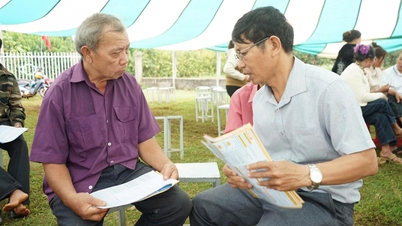



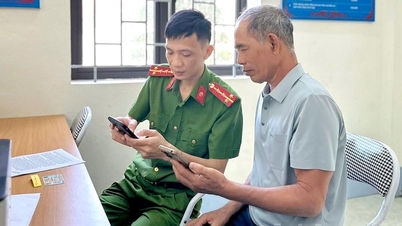

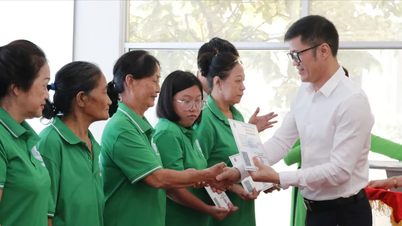

























































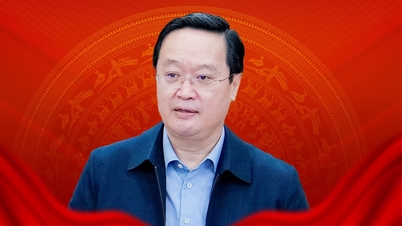










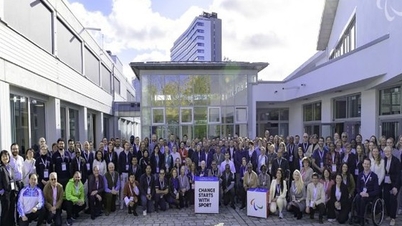


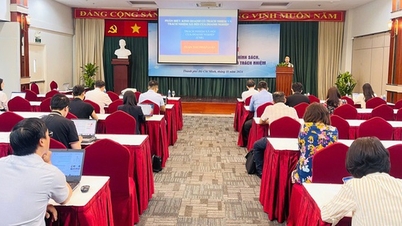





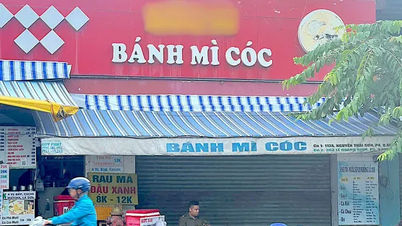


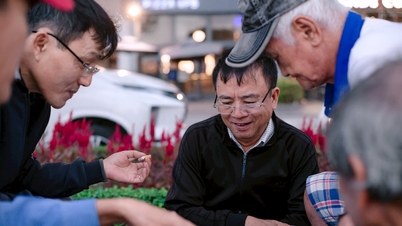

![Dong Nai OCOP transition: [Article 3] Linking tourism with OCOP product consumption](https://vphoto.vietnam.vn/thumb/402x226/vietnam/resource/IMAGE/2025/11/10/1762739199309_1324-2740-7_n-162543_981.jpeg)













Comment (0)